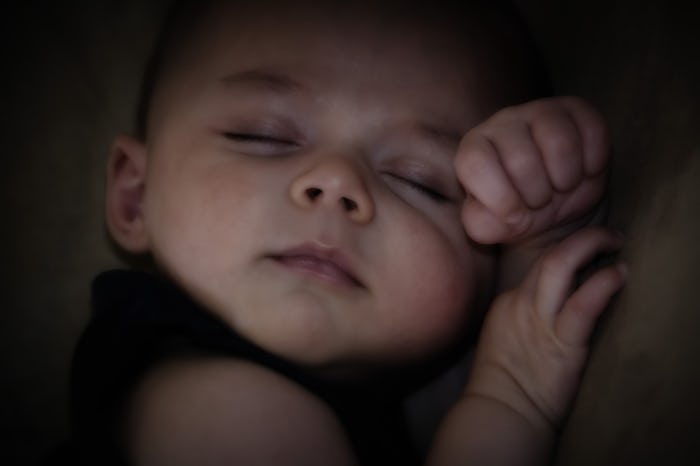Almost every parent has, at some point or another, been willing to try virtually anything that promises to help their child go to bed. Whether you have a fussy newborn, an energetic toddler, or your child who simply has difficulty falling and staying asleep, you've probably felt the effects of a child who didn't have a good night's sleep. You might be wondering, then, what are some white noises that are good to put your child to sleep, since a well-rested child equals a happy child (and parent).
If you can think back to your college years, when you pulled all-nighters fueled only by caffeine and youthful determination, you probably experienced a night or two of insomnia. But the difference between an adult and a child when it comes to sleeplessness, is that your little one's mind is still growing, developing, and working overtime creating new synapses. All of that brain activity can be quite tiring, so it makes a bit more sense that children find it harder to wind down than most adults do.
So if you've tried dimming the lights, giving warm milk, reading bedtime stories and still haven't found the right fit for your child's sleep schedule, check out some of these white noises that will help your child fall asleep.
1A Humidifier
Humidifiers don't just keep your little one's room nice and comfortable, they can also be a great source of white noise. According to The Baby Sleep Site having repetitive sounds, like a humidifier, help your baby fall asleep. In fact, you can try it out yourself and see if it works for you, too.
2Hypnotic Bedtime Stories
Think of it as meditation, but for kids. According to Parents, hypnotic bedtime stories are similar to white noise because their rhythmic pacing lulls your child into relaxation. When my friend, Alana, first told me about this type of white noise, I was skeptical. But when she put on The Rabbit Who Wants To Fall Asleep, by Carl-Johan Forssén Ehrlin, her twins were out in a matter of minutes. You can either read this in person or put the audio on and it seems to have the same affect.
3Low-Pitch Sounds
What sounds like an ominous opening to a horror film to most adults, babies apparently find low-pitch sounds very soothing. Dr. Harvey Karp, a pediatrician, explained to CNN, "low-pitched, rumbly sounds are better for a baby's sleep, since they are reminiscent of the experience in the womb." You can find many examples on YouTube and see which one works best for your child.
4Pink Noise
Pink noise is similar to white noise but is viewed as a more gentle option in the sleep study community. Dr. Jue Zhang, a sleep study expert at China’s Peking University, told Prevention that pink noise is, "a type of sound in which every octave carries the same power, or a perfectly consistent frequency." Some examples from Zhang included falling rain, wind, and rustling leaves.
5Brown Noise
With no connection to the color, rather the name of the person who discovered the pattern, brown noise has deep, rich qualities ideal for sleep, according to Sound Hawk. Think of sounds like clothes tumbling in a dryer or a train chugging along.
6Womb Sounds
My Aunt Marianne is a bit of a baby whisperer. Her method involves slowly rocking the baby up and down while making a hushed "whoosh" noise. Though I hadn't given much thought to her technique, it turns out that sounds which mimic the environment of the womb, like whooshing amniotic fluid, are wonderful white noise options, according to Parents.
7Heartbeat
This one actually came at the recommendation of both my OB-GYN and my son's pediatrician. Especially beneficial for younger children, heartbeat sounds remind them of hearing their mother's heartbeat in-utero .
8Sleep Conditioner
Though you could just try running the vacuum or turning on the blow dryer, neither option is particularly safe or efficient. Instead, The Sleep Foundation recommended using sleep conditioners to provide constant, ambient white noise for helping your child fall asleep.
9Your Voice
Dr. William Fifer, professor of psychiatry and pediatrics at Columbia University, told Parenting about a study he conducted where a baby's pacifier was synced to a tape recorder which played either their mother's or a stranger's voice, depending on how fast or slow the infant sucked on the pacifier. Fifer told Parenting THAT, "the babies learned to adjust their sucking rate on the pacifier to turn on their own mother's voice, indicating that mom's voice has a calming effect." Consider recording yourself reading a story, singing a lullaby, or just talking gently so your child can fall asleep to the background noise of your voice.
